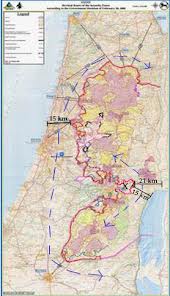At National Public Radio, only Israel can do wrong when it comes to unilateral moves affecting the peace process. On November 30, the Palestinian Authority undermined a core principle of the peace process by snubbing negotiations with Israel and going to the General Assembly of the United Nations to gain affirmation of its statehood. Several days later, Israel announced plans to build homes in a 4.6 square mile corridor of land, known as E-1, that connects Jerusalem to the West Bank community of Ma’ale Adumim. But on
Morning Edition, National Public Radio (NPR) correspondent Philip Reeves Reeves, along with hosts Renee Montagne and David Greene, condemned only Israel for its action and gave the Palestinians a pass.
Harsh Language for Israel, No Admonition for the Palestinians
Reeves, two of his three interviews and the show’s hosts used lethal imagery to characterize the Israeli decision to build homes on the disputed land.
Morning Edition host Renee Montagne set the unbalanced tone, stating:
“The Palestinians angered Israel last week by securing a symbolically important vote at the United Nations General Assembly, upgrading their status from a non-member entity to a non-member state. Israel responded with reprisals.”
Correspondent Reeves then established that “successive U.S. administrations have urged Israel not to build E1, fearing it would wreck chances of a negotiated peace.” To emphasize his abhorence of the Israeli move, he then intoned, “It would dismember any potential future Palestinian state.”
Extreme anti-settlement activist Daniel Seidemann added his own lethal metaphor suggesting that “E1 is the fatal heart attack of the two-state solution.”
Not to be metaphorically outdone, Palestinian government spokesperson Nour Odeh stated, “Constructing E1 would mean that this state would be mutilated. So it’s a very strategic, very important, very dangerous decision.”
Reeves added that “Odeh says it would be a serious blow to any prospect of a two-state accord” and that “Israel has many settlements which are regarded as illegal by the international community.”
Words like “wreck,” “dismember,” “fatal heart attack,” “mutilated,” “dangerous” and “illegal” may seem awfully harsh to describe the planned construction of some homes. But for the Palestinian decision to bypass negotiations with Israel and dispense with the central tenet of the peace process, all NPR could muster was that it “angered” Israel. Israel could be held equally at fault for feeling angered as the Palestinians for having angered Israel.
In fact, the Palestinian decision to jettison negotiations means they are turning their back on a requirement of UN Security Council Resolution 242, the Oslo Accords and the Road Map. Furthermore, the legality of Israel’s settlements are a matter of contention. The United States as well as Israel do not consider the settlements “illegal.” The framers of UN Security Council Resolution 242 specifically rejected the notion that Israel is illegally occupying the land. While many in the international community do regard Israel as an occupier, NPR should have clarified that some, including the United States, do not.
Erroneous Geography
The report also contained misleading information. Reeves states that
E1 refers to a corridor between East Jerusalem where the Palestinians aspire to create their capital and the big Israeli settlement of Ma’ale Adumim. If built, E1 would cut in two a big chunk of the West Bank. That, says Seidemann, would prevent the Palestinians from having a contiguous stretch of land, which they need if they’re to have a viable state.
What E1 would do would drive a wedge from East Jerusalem almost down to the Jordan River Valley, with a very steep decline. It would dismember any potential future Palestinian state.
Here is a map of the area in dispute:
The map clearly shows construction in the E-1 area (marked by an X) does not cut the West Bank into two or prevent a future contiguous Palestinian entity. The New York Times, a newspaper that shares NPR’s sympathy for the Palestinians and hard-line towards Israeli settlements recently publicly corrected the same statement in their news reporting.
NPR’s use of such harsh language to condemn Israel’s announced plans to build homes in a corridor linking Jewish communities, while describing the Palestinian decision to bypass negotiations with Israel using neutral language, demonstrates striking imbalance. This partisan tone was compounded by the misrepresentation of straightforward geography. It provides further evidence of a persistent and troubling bias at NPR and a failure to accurately convey basic facts.

